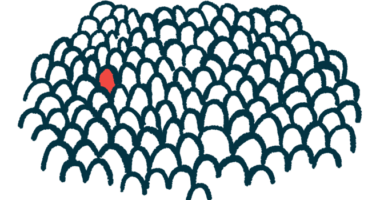New CMT-causing Mutation in MFN2 Gene Found in Japan

A never-before-reported mutation in the gene MFN2 was found to cause a severe form of Charcot-Marie-Tooth disease (CMT).
Scientists in Japan described the case in “An MFN2-related Charcot-Marie-Tooth Disease Patient with Optic Nerve Atrophy, Neurogenic Bladder Dysfunction, and Diaphragmatic Weakness,” published in the journal Internal Medicine.
Mutations in over 100 genes have been shown to cause the various types of CMT. Mutations in MFN2 are the most common cause of CMT type 2 (also known as axonal CMT), accounting for up to 30% of cases.
The subject of the new report was a 64-year-old Japanese woman. She had started to experience muscle weakness of the lower limbs when she was 3 years old.
Over time, her symptoms had gotten progressively more severe; she was using a walker to get around at age 15 and was using a wheelchair by age 20. The patient had experienced constipation since her 20s, and at age 38 she began to experience urinary incontinence.
At age 47, the woman was admitted to the researchers’ hospital. A series of clinical tests revealed symptoms and signs indicative of CMT — for example, diminished reflexes and damage to the optic nerve (the nerve that connects the eyes to the brain), with consequent vision impairment — and she was formally diagnosed with the disease.
The woman began to experience difficulty breathing when she was 62, which the researchers said was also likely a severe manifestation of CMT.
When she was 63 years old, the woman agreed to undergo genetic testing. A sample of her blood was collected, and the scientists determined the sequence of 72 genes that have been tied to CMT.
Results of the testing revealed a mutation in the MFN2 gene, referred to as c.740 G>C, or p.R247P, respectively referencing the effect on the DNA code or the protein that’s produced when the gene is read. This mutation has never been reported before.
The mutation was heterozygous, meaning it was only present in one copy of the gene. (Everyone has two copies, one from each biological parent.) Mutations in MFN2 are usually autosomal dominant, meaning just one mutated copy is enough to cause disease.
Analyses of the mutation indicated that it likely interfered with the function of the MFN2 protein, and genetic testing of the woman’s sister showed she did not carry this mutation, which supports the idea that this mutation was responsible for the patient’s CMT.
“We herein report an MFN2-related CMT patient with a novel heterozygous MFN2 pathogenic [disease-causing] variant (c.740 G>C, p.R247P) and severe phenotypes [disease manifestations],” the researchers said.
“The findings in our patient with a novel MFN2 mutation expand the clinical and genetic understanding of MFN2-related CMT,” they added.







